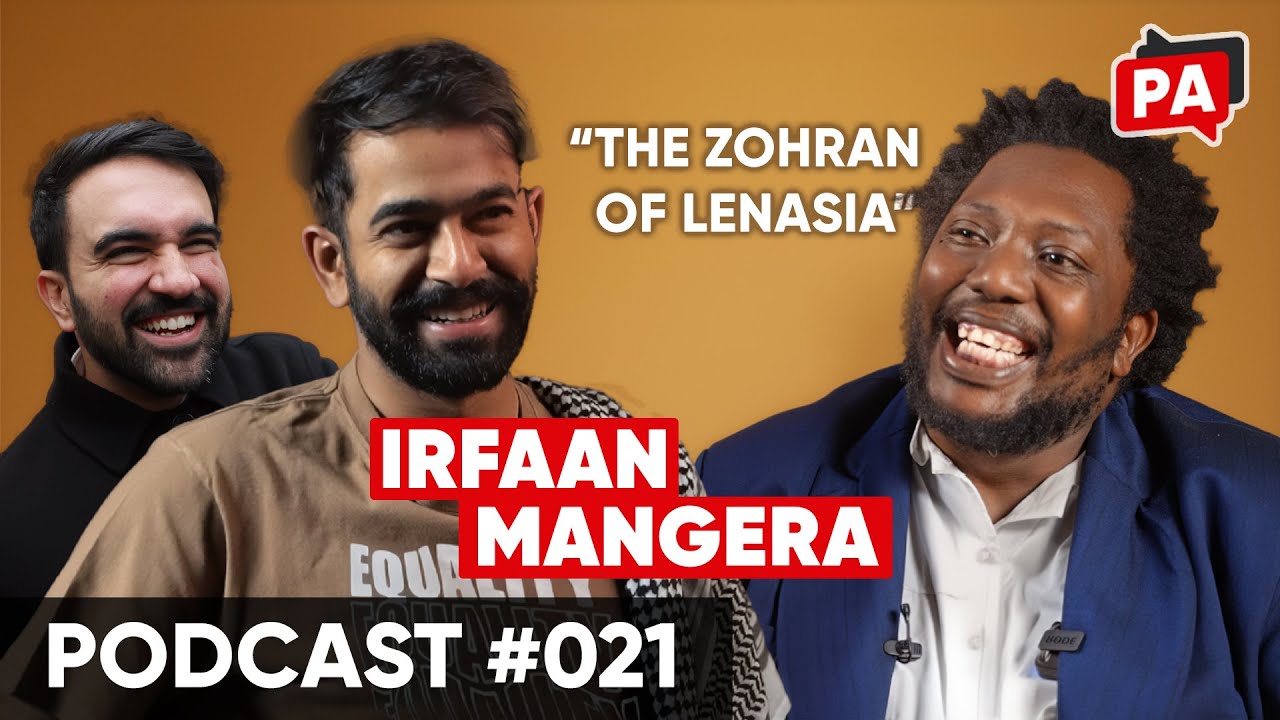
.svg)
Tensions Flare Outside African Energy Week in Cape Town
Chants of “What do we want? Climate justice! When do we want it? Now!” rang out across the Cape Town International Convention Centre this week, as climate activists confronted delegates attending the African Energy Week (AEW) conference.
While executives in suits moved briskly through the venue’s glass doors, Politically Aweh’s journalist Zoë Human tried to get their thoughts on the event. Most brushed her off. “A lot of people are telling me they can’t speak to me because they can’t speak English,” she quipped on camera. “This event is not in Spanish. It’s not in German.”
“False solutions” vs. people-centred energy
For protesters, AEW represented everything wrong with Africa’s energy future.
Sandrine Mpazayabo of Fossil Free South Africa was blunt: “Africa Energy Week Conference is not about real solutions. This is just another activity that speaks to the fossil fuel industry’s bottom line.”
Echoing this, Gabriel Klaasen of the Climate Justice Coalition warned against more investment in oil, gas, and coal: “We can’t afford to keep going down the path of false solutions like oil, gas, nuclear, more coal — god forbid. We need real solutions to the climate crisis, and that’s renewable energy and people-centred solutions.”
At the CTICC, however, the mood was very different. When Zoë asked one delegate about the conference, he responded: “There’s a lot of consistency around people wanting to support oil and gas in particular.” Another attendee insisted hydrocarbons “shouldn’t be ignored.”
Development or deception?
For civil society leaders, the fossil fuel narrative is deeply misleading.
Stella Hertantyo of the African Climate Alliance pushed back on the industry’s framing: “We often get called anti-development in the civil society space. And it really angers me, because if it was so good for development to have coal, gas, and oil, why are we still seeing year on year greater poverty, deeper inequality, and more unemployment? It doesn’t make sense.”
Meanwhile, Zoë pointed out that ordinary South Africans are locked out of the debate entirely: “Tickets cost thousands of dollars while ordinary South Africans can’t even get through the door. No, really. If I try to get a ticket, my card would decline.”
Shady leadership and a call for accountability
The protests also drew attention to the event’s leadership. Zoë noted that NJ Ayuk, the chairman of the African Energy Chamber, had previously been deported from the United States for illegal dealings.
Mpazayabo said this only confirmed suspicions: “I’m disappointed, but I’m not surprised. Conferences like these are often a smokescreen for the real shady dealings within the fossil fuel industry. Without protests like these, we have little to no voice. We need to continue to disrupt and dismantle. And we need him to come out and explain himself.”
Two worlds, one future
Tellingly, some delegates admitted they were unaware protests were even happening outside. For activists, this disconnect symbolises the problem: a closed-door industry event focused on hydrocarbons, while civil society calls for renewables and justice go unheard on the streets.
The clash at AEW reveals a continent at a crossroads — between a fossil-fuelled status quo and a push for a just, renewable energy future.








